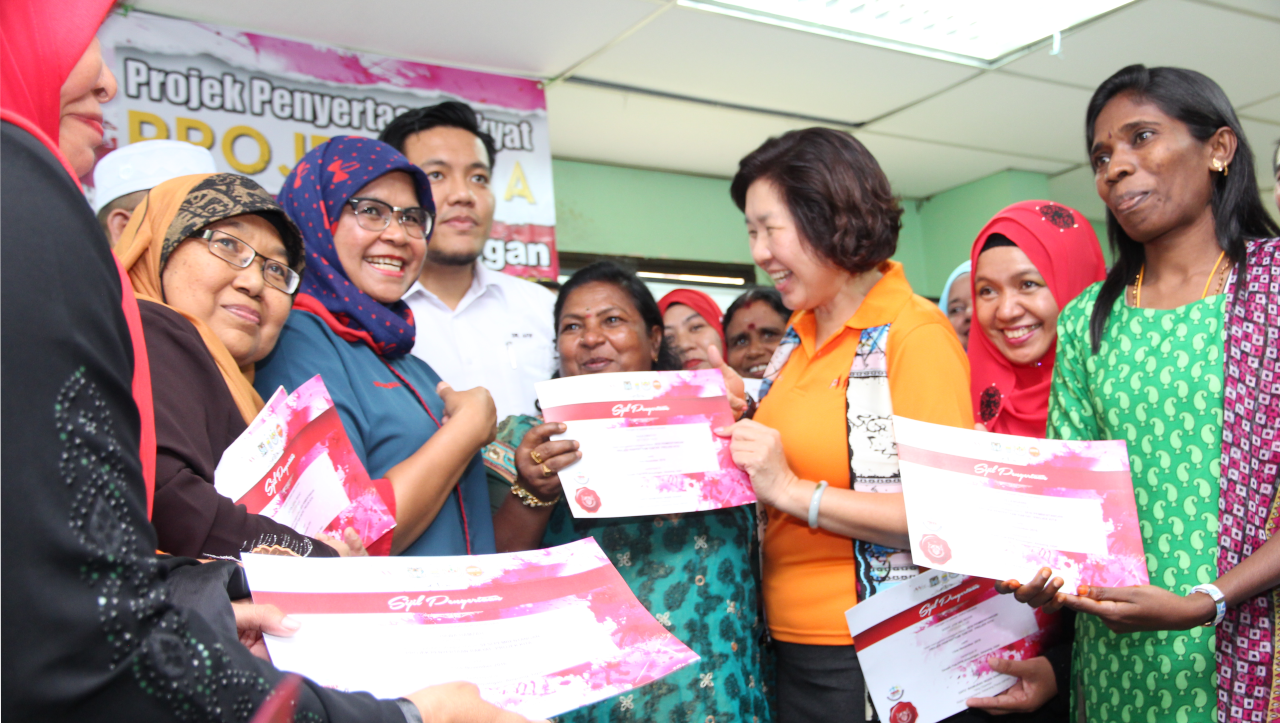Friday, 23 March 2018

Shariza Kamarudin
Programme Manager (Pengurus Program)
Gender Responsive & Participatory Budgeting (GRPB)
PENANG WOMEN’S DEVELOPMENT CORPORATION (PWDC)
Penang is the first State that is implementing the Gender Responsive Budgeting (GRB) in Malaysia. The commitment of the new state government that took over Penang in 2008 in its mission of promoting gender equality and social justice eventually gave rise to the setting up of the Penang Women’s Development Corporation (PWDC) in 2011. PWDC’s vision is to mainstream gender into the policies and programmes of all sectors to achieve gender and social justice in the state of Penang. GRB has become the flagship programme in PWDC. A smart partnership started in 2012 between PWDC and the two local councils – Penang Island City Council and Seberang Perai Municipal Councils to implement GRB in Penang.
The name was then formally changed to Gender Responsive and Participatory Budgeting (GRPB) in 2014 to reflect the due emphasis and importance the two budgeting approaches – GRB and Participatory Budgeting (PB). The GRB methodology analyses decision-making on public expenditure in the context of implications on gender equality and attempts to bring development and changes that will make budgets more gender-equal. The PB model, on the other hand, introduces processes in which citizens can directly influence aspects of budget decision-making. For this, the Penang won a special mention award at the International Observatory on Participatory Democracy in 2014 for its innovative combination of participatory processes with gender responsive measures through community projects. The two local councils in Penang are now in the midst of implementing the Strategic Plan of Action for Institutionalizing GRPB 2016-2018 in their respective institutions.

The GRPB methodology gave people the power to play their roles as active citizens and to become partners – not just beneficiaries – with the local councils, especially in formulating policies and making decisions in the key areas that affect their lives. The methodology comprised four steps. Step one entailed a situational analysis/needs assessment through a survey, focus group discussions or voting on needs and allocations. The survey was a basic demographic survey to gather background data on the context of the project. For the focus group discussions, five groups were consulted to understand the needs of both women and men. These were: children/teenagers (aged 18 and under); youth (aged 19-30); adults (aged 31-55); senior citizens (aged 56 and above); and disabled people. Focus group discussion questions included:
• What are the issues/problems you experience?
• Why do these issues/problems occur?
• How can these issues/problems be resolved?
Residents voted based on a ‘priority needs’ list that emerged from the focus group discussions. Each individual (including residents aged 10 years and above for housing projects) was given ballots to vote for their prioritized items.
Step two used the outcomes of step one for planning and budgeting. Decisions were based on project feasibility, technical considerations and budget availability.
Step three was the implementation of the project, and in step four the project was monitored and evaluated. Community representatives including women and young men were involved in the process of implementing GRPB in Penang, assisting in the survey and mobilizing people to attend focus group discussions and to vote.
GRPB processes can be challenging especially to bring people together and make sure there are representations of women and men with different background in community to be part of the process. However, this participatory approach to planning for a project provides the respondent stakeholders with a sense of ownership and become agents of change.